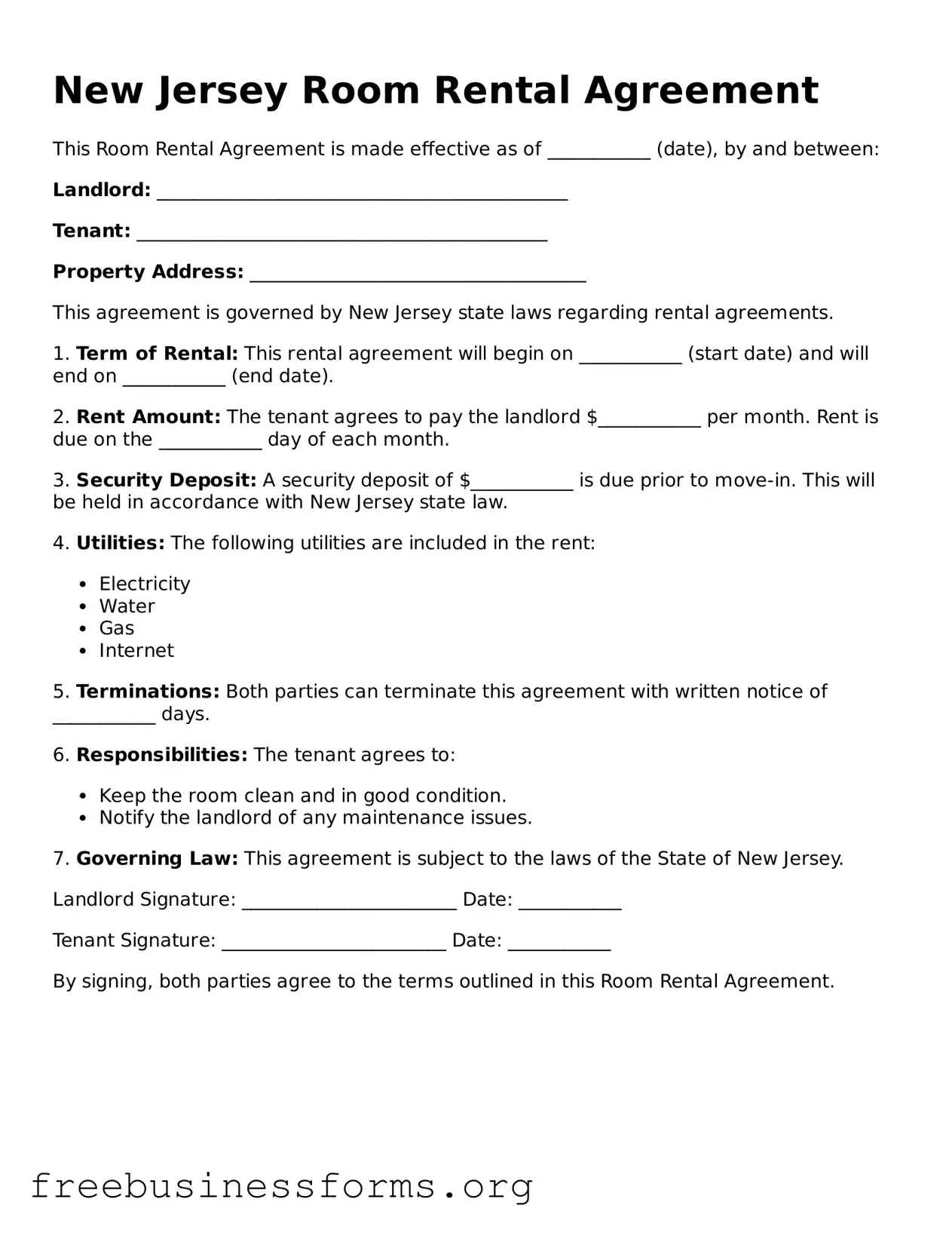Blank Room Rental Agreement Template for New Jersey
The New Jersey Room Rental Agreement is a legal document that outlines the terms and conditions between a landlord and a tenant for renting a room in a residential property. This agreement serves to protect the rights of both parties while ensuring a clear understanding of responsibilities. Understanding this form is essential for anyone considering entering into a room rental arrangement in New Jersey.
Open Form Here

Blank Room Rental Agreement Template for New Jersey
Open Form Here

Open Form Here
or
↓ PDF File
Quickly complete this form online
Complete your Room Rental Agreement online quickly — edit, save, download.